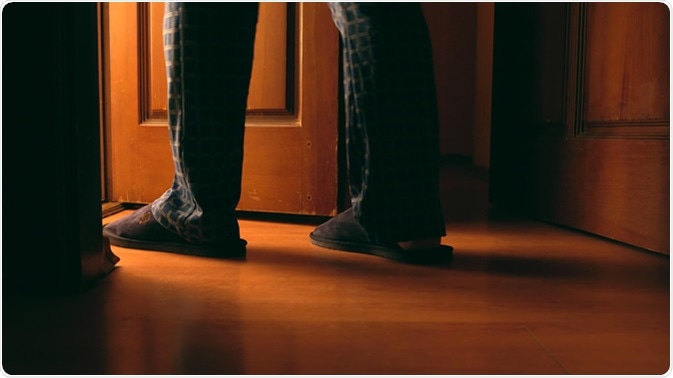Cystitis is the term used to describe inflammation of the bladder. Its roots are in the Greek terms “cyst,” meaning bladder and “itis,” meaning inflammation. This inflammation is usually caused by infection, although it can also be caused by irritation or damage.

Image Credit: cliplab.pro / Shutterstock
Cystitis is a common urinary tract infection, and it is not usually a cause for serious concern. Although cystitis affects women in the majority of cases, it can also affect men, in which case medical attention should be sought because cystitis can be an indicator of a more serious problem in this group. In other words, male cystitis could be caused by the following:
- A problem with the prostate such as infection (prostatitis) or enlargement (benign prostatic hyperplasia)
- A problem with the bladder such as urinary tract obstruction caused by a growth
- Kidney stones
- Urinary tract abnormality such as urethral stricture (narrowing of the urethra)
Symptoms
The signs and symptoms of cystitis include the following:
- More frequent or strong urge to urinate, even when the bladder is empty
- Dysuria - a burning or stinging sensation on urinating or just afterwards
- Difficulty urinating
- A low-grade fever
- Urine with a stronger odor than usual
- Cloudy urine
- Hematuria or blood in the urine
- Lower back pain
- Pain in pubic region
Risk Factors
The likelihood of a man developing cystitis is increased by certain factors, such as:
- Infection elsewhere in the genitourinary system
- Excessive alcohol intake
- Traumatized urethra
- Use of urinary catheter, especially the indwelling type
- Obstruction of urinary tract, often as a result of enlarged or inflamed prostate
- Recent surgery that required catheter use
- Homosexual activity
Prevention
Practices that can help to reduce the likelihood of cystitis developing include:
- Keeping well hydrated by drinking at least 8 glasses of water per day
- Using condoms during anal sex
- Ensuring urinary tract infections are treated quickly
Treatment
A diagnosis of male cystitis may involve urine analysis, cystoscopy and an ultrasound examination. Treatment depends on the underlying cause, but usually includes the use of antibiotics.
Male cystitis that is promptly treated usually resolves and does not lead to any serious problems, although it can be very painful. However, if the cystitis is caused by a problem such as obstruction, this will need to be treated first. If male cystitis is left untreated or not treated adequately, it can lead to chronic urinary tract infection, which can go on to cause kidney failure.
During treatment, patients should ensure that they get plenty of bed rest while the symptoms are acute. They should also avoid coffee and alcohol and stay well hydrated by drinking 8 glasses of water per day. Sex should be avoided until the patient has been asymptomatic for two weeks, which is usually long enough to allow the resolution of inflammation.
References
Further Reading
Last Updated: Dec 29, 2022